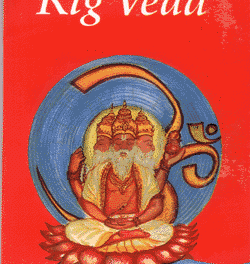 It is to be kept in mind that everyone need to be converted whether a Christian or a Hindu. Ideally conversion that a Christian advocates is not to a religion but to the person of Jesus Christ. Conversion is about restoring the primacy of God in individual and corporate life writers Rev. Daniel Deepak, pastor at one of the largest CNI Churches in North India.
It is to be kept in mind that everyone need to be converted whether a Christian or a Hindu. Ideally conversion that a Christian advocates is not to a religion but to the person of Jesus Christ. Conversion is about restoring the primacy of God in individual and corporate life writers Rev. Daniel Deepak, pastor at one of the largest CNI Churches in North India.
Introduction
The term Hindutva is a merger from the terms Hindu and Tatva which means ‘the Essence of Hindu’. Originally the term Hindu was applied to the people living on the east of river Sindhu. It was not inclusive of all the sects prevalent in India before 19th century but gradually it emerged to be referred to people following a particular religion and culture. During the 20th century, with the rise of certain fascist groups, the term Hindutva has signified fanatic strand of Hindu nationalism.
The Hindutva ideology is political, geographical and racial in nature. It is not even inclusive of all those who call themselves as Hindus but is brahminical in its nature. Sangh parivar’s slogan ‘one nation, one culture, one religion, one language’ depicts the divisive nature of Hindutva ideology. Claiming their roots in Hitler’s Aryan regime, the advocates of Hindutva try to homogenize the nation with one identity, one religion and one culture. Muslims, Christians, Dalits, tribals who they deem as not fitting to the matrix of Hindutva movement, are vandalized in all ways. At the core of Hindutva movement is a caste-based hierarchical ideology which is always feels insecure from non-brahminical sects and religions.
The term Hindutva is very vague and hon. Supreme Court also refrained itself from defining it in a narrow sense of a statement. Like wise the legal status of conversion is ambiguous too. It is an ideology of the socially elite who want to dominate through their political agenda. It is a perilous mix of religion and politics.Muslims and Christians are considered to be the major threat to Hindu nationalism since former grow biologically and later by conversion.
Inalterability of social status in Hinduism
Since the brahminical religion asserts the existence of caste by the virtue of creation it is clear that a Hindu is already in a particular state by the virtue of his/her birth. Only death can change his/her caste or form. The inescapability of varna-pratha is by the virtue of creation. This explains the hegemonic brahminical mind set.
According to Hindu understanding, human beings are by default unequal in dignity and socio-economic status. Although it seems that the social and economic status go parallel but it must be asserted that even a change in the economic status will not change one’s social status. A shudra is a shudra apart from his/ economic elevation. One’s descent determines ones rank. Moreover the in metaphysical realm of Hindu world views, there is an inherent inequality between the gods and goddesses where some are powerful and higher than others. This exhibits hierarchical modes of existence. This is projected in the physical realm in the form social inequalities and caste system. In Christianity all human beings are made in the image of God and by the virtue of creation they are equal. Human dignity is based on the nature of God rest is what they become. Even after the fall they are equal. Furthermore, the equality of persons in God-head is reflected in the Christian outlook towards fellow human beings and the physical reality
The theology of Conversion
It is to be kept in mind that everyone need to be converted whether a Christian or a Hindu. Ideally conversion that a Christian advocates is not to a religion but to the person of Jesus Christ. Conversion is about restoring the primacy of God in individual and corporate life. At the heart of the ideology of conversion, lies a presumption that the fundamental problem of humanity is not social or economical or political or religious but it is its breach with the creator God. It is this breach that has caused alienation within human society. In order to liberate human society, individual transformation must first take place. Hence Jesus does not begin by first giving a new set of moral values but by transforming individuals through ingrafting in them a new nature. Reformation of the society cannot be brought about without the transformation of individuals. Conversion is also about the restoration of God’s image in human beings which will ultimately restore them to pre-fall dignity.
The imperative of Conversion
Lost-ness of humanity and inadequacy of religion to save it is the primary reason for conversion. Christian missionary endeavors are fuelled by the fact that only in Jesus Christ is there a hope for humanity. Salvation is found in no other name.
The clutches of caste system necessitates conversion. Either Hinduism must reform itself or must allow for a radical conversion that Christianity proposes. Since Hindu fascism is backed by religious ideology, replacement of its world-view by another is the only solution for breaking down of barriers of varnas. Caste-system is a hindrance to socio-economic progress. Conversion on other hand is a rediscovery of personhood, human dignity, identity and social standing. Replacement of an oppressive world-view by a liberating one is essential for societal and national transformation and Christianity best suits the option. In conversion, accepting Christ as Savior and Lord does not trigger opposition what does is accepting Him only.
The indifference of the elite towards the under-privileged of the society gives us another reason for conversion. Hindutva proponents do not get alarmed by the social condition of the women and Dalits of the society as they are by the conversion rates.
{moscomment}






Excellent one. I passed it on to a Hindu friend with whom I am presently in dialog.
i see that your article clarifies conversion in one line as the change to the primacy of God in one’s life from self or other things and thats something which will help remove misunderstandings about conversions.
I thought the final distinction between what ought to outrage the intelligent – mistreating human beings, and what does – a threat to my worldview was well made and compelling.
Usual rants on varnaashrama dharma without understanding the concept.
1. The purpose of Varna is NOT to impose inequality, but to give guidance on the type of spiritual pursuits suitable at a stage based on one’s karma.
2. The basic principle of Varnashrama dharma is to do one’s prescribed religious duties without any tinge of selfishness and as dedication to God alias Lord Vishnu. This is what is called as karma Yoga in Gita.
All kinds of exploitation are automatically precluded from this system.
3. No two people are equal in any objective sense. Some are born fools, some insane, some intelligent, some capable, some incapable etc. etc. This is clearly observed in our own experience. There are differences and gradation between them. The entire creation is full of gradation, culminating with Bhagavan or Lord Vishnu as the highest of all. There is no gradation within Vishnu (who is distinct from world) however.
However this gradation do NOT suggest exploitation in Hinduism. the basic principle of Hinduism is very clear in Isavasya Upanishad.
This entire universe is pervaded by the Lord Hari, for the reason that it is dependent upon primordial nature, which in its turn is also pervaded by Him. He alone is thus independent. For this reason, enjoy whatever is given to you by Him, and do not seek wealth from any other source (since Hari alone is independent, do not worship others such as kings in hopes of wealth). ||1.||
(This verse automatically exploitation of any kind.)
One must desire to live even a hundred years by doing prescribed karma only. Thus is it right for you, not otherwise; [if this is done, then] sin will not bind the human. ||2.||
(This verse gives the principle of varnashrama dharma, to do one’s duty without selfish expectations)
4. All the social inequalities you see today are based on political and economic conditions. It is NOT enforced by religion. How many of these Hindus who exploit dalits even learn Hindu scriptures or know Sanskrit?
95% Hindus do NOT even know Hindu scriptures, NOT even Gita, especially the rural folks where exploitation is the norm. So how can one blame Hindu scriptures for this?
5. Gradation need NOT necessarily imply exploitation. There can be benevolent gradation and it is possible.
Even you xians believe in such gradation between your alleged god trinity and his creation.
Similarly, the gradation Hinduism or Vedas preach is benevolent and its very basic main principle is performance of duties without any tinge of selfishness.
6. A Shudra need NOT be necessarily inferior. Inferiority or superiority is based on conduct and knowledge as opposed to mere Varna status. Example, even the dharma shastras say a Brahmana bandhu (relative) who does NOT follow is vratya (outcaste so to say). Even mansu says in 2:87 that a true Brahmana is friend of all creatures. So how can eploitation be the motive of Hindu scriptures.
7. Even Devatas who are worshiped by us Hindus have Varna within them. Some devatas are themselves Shudras, yet worshipful. So this issue is NOT very simple.
As I said superiority or inferiority is Vedic system is more complicated. The basic rule which decides superiority is based on conduct and knowledge.